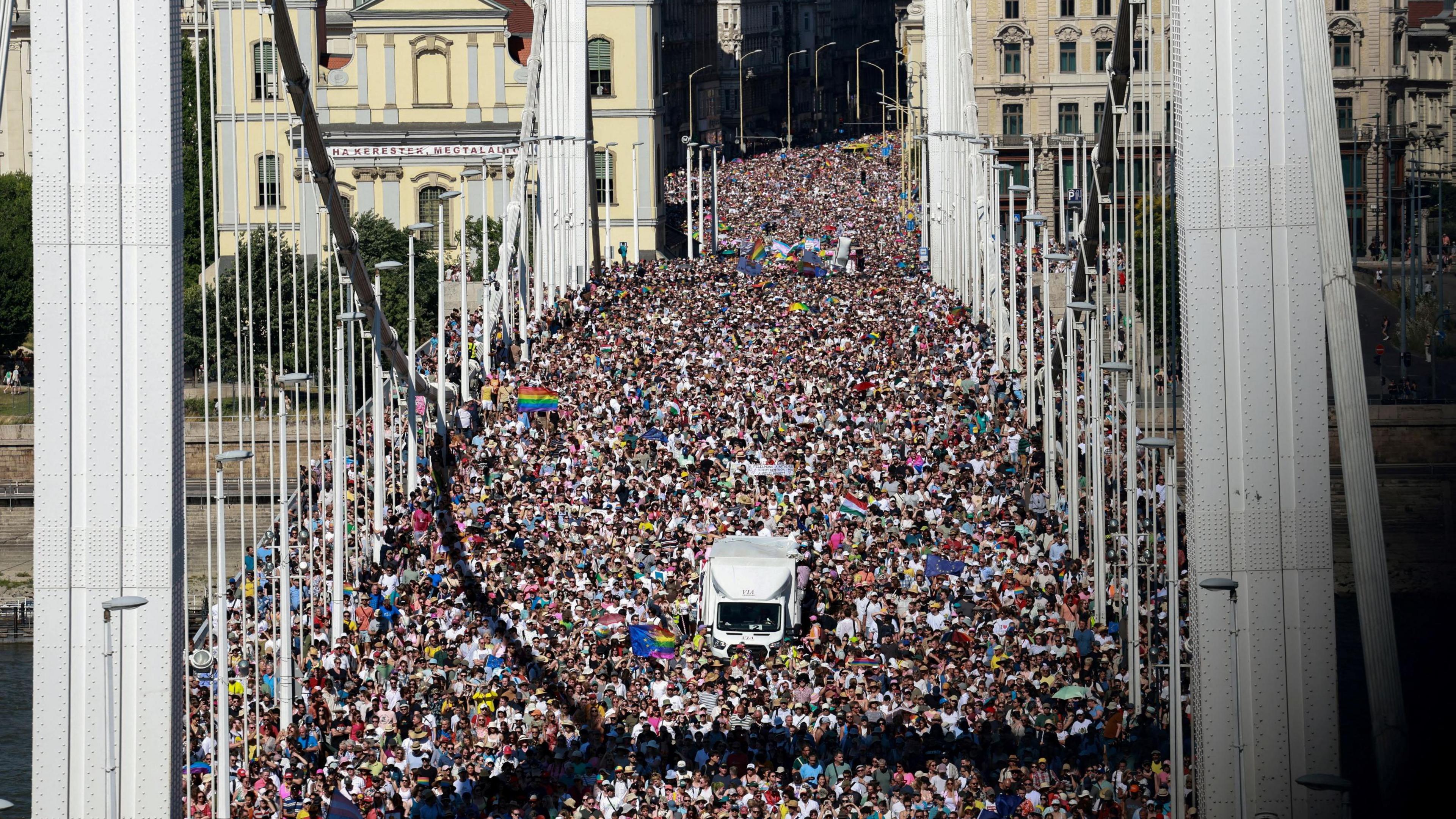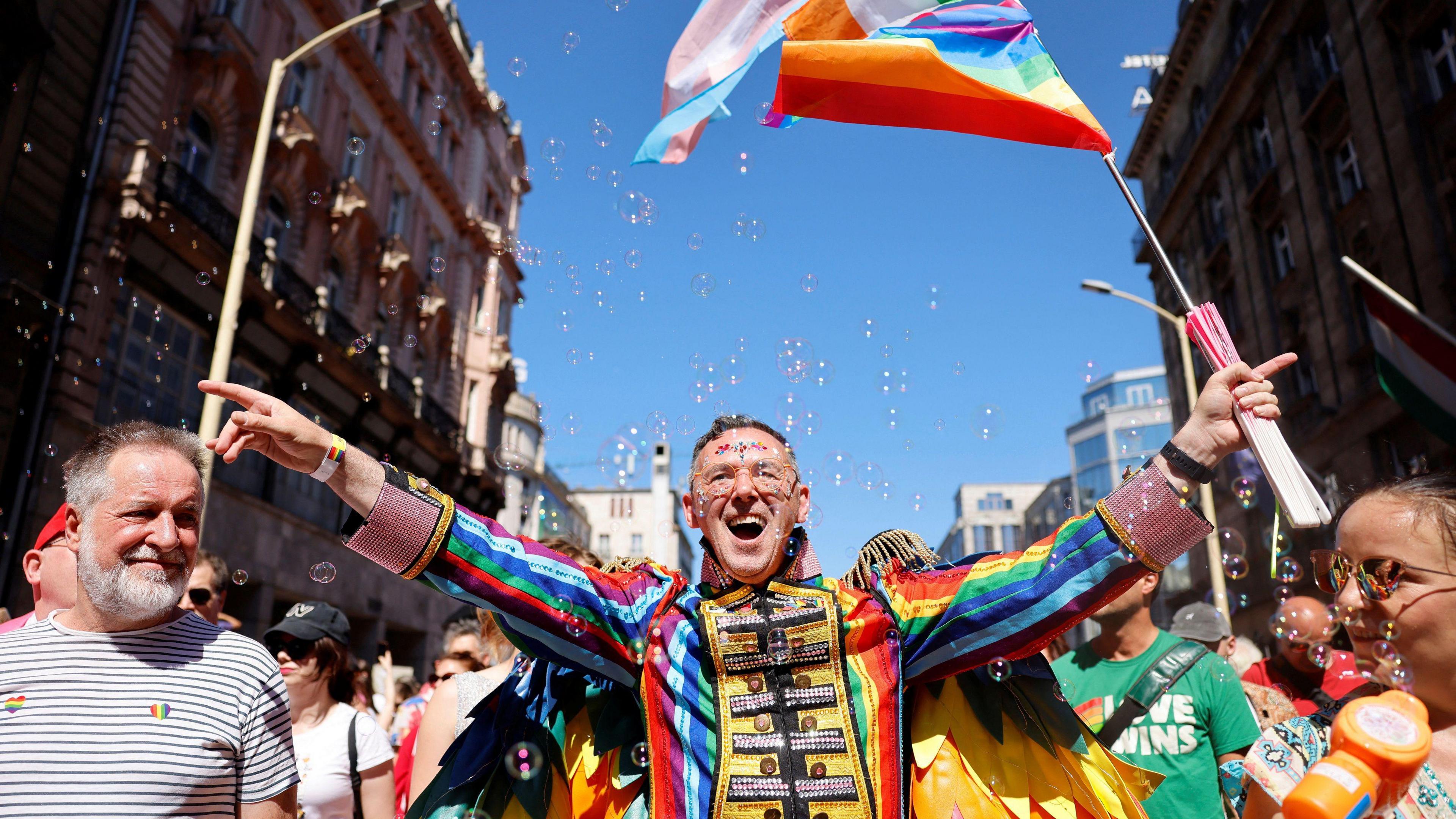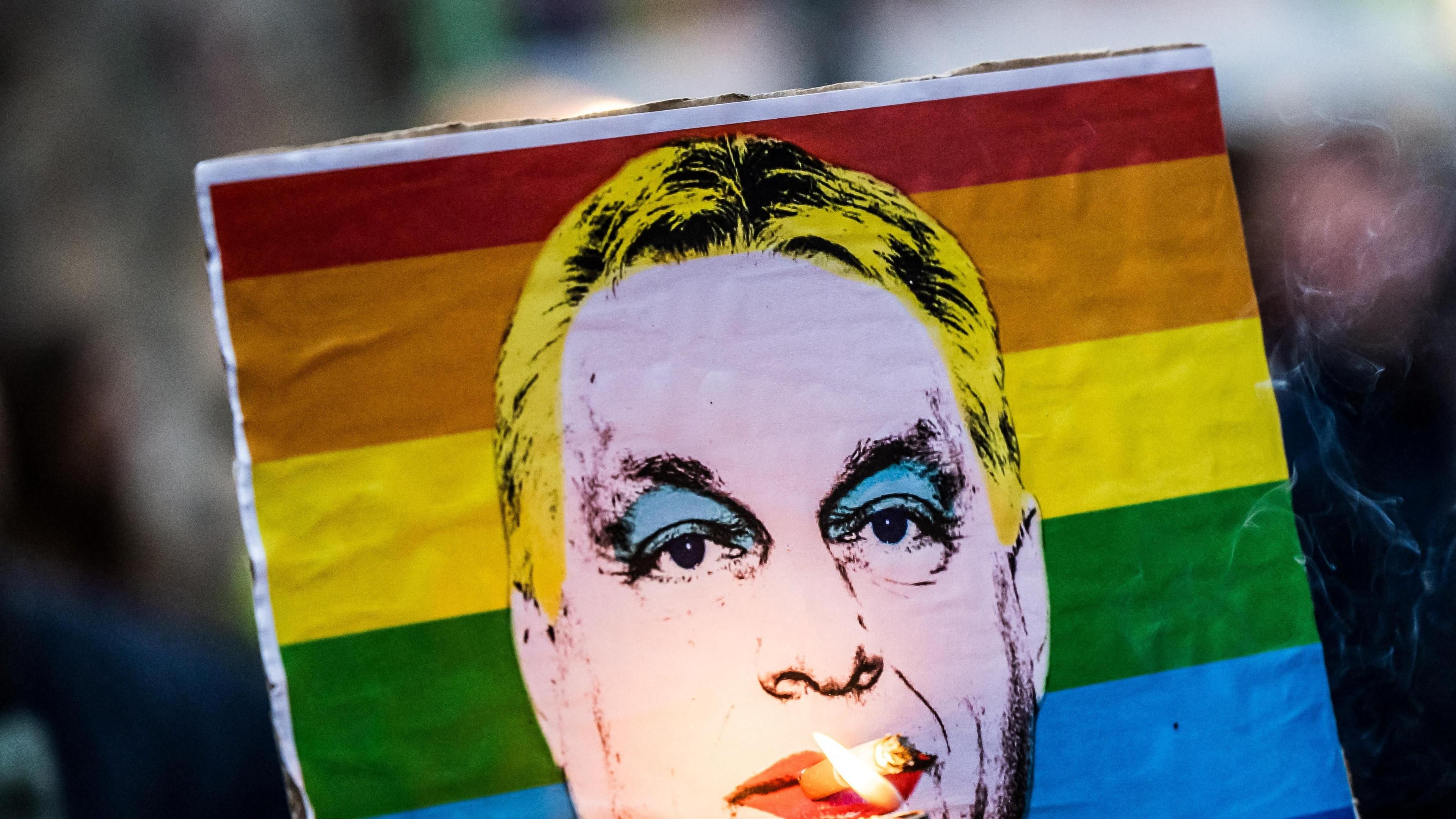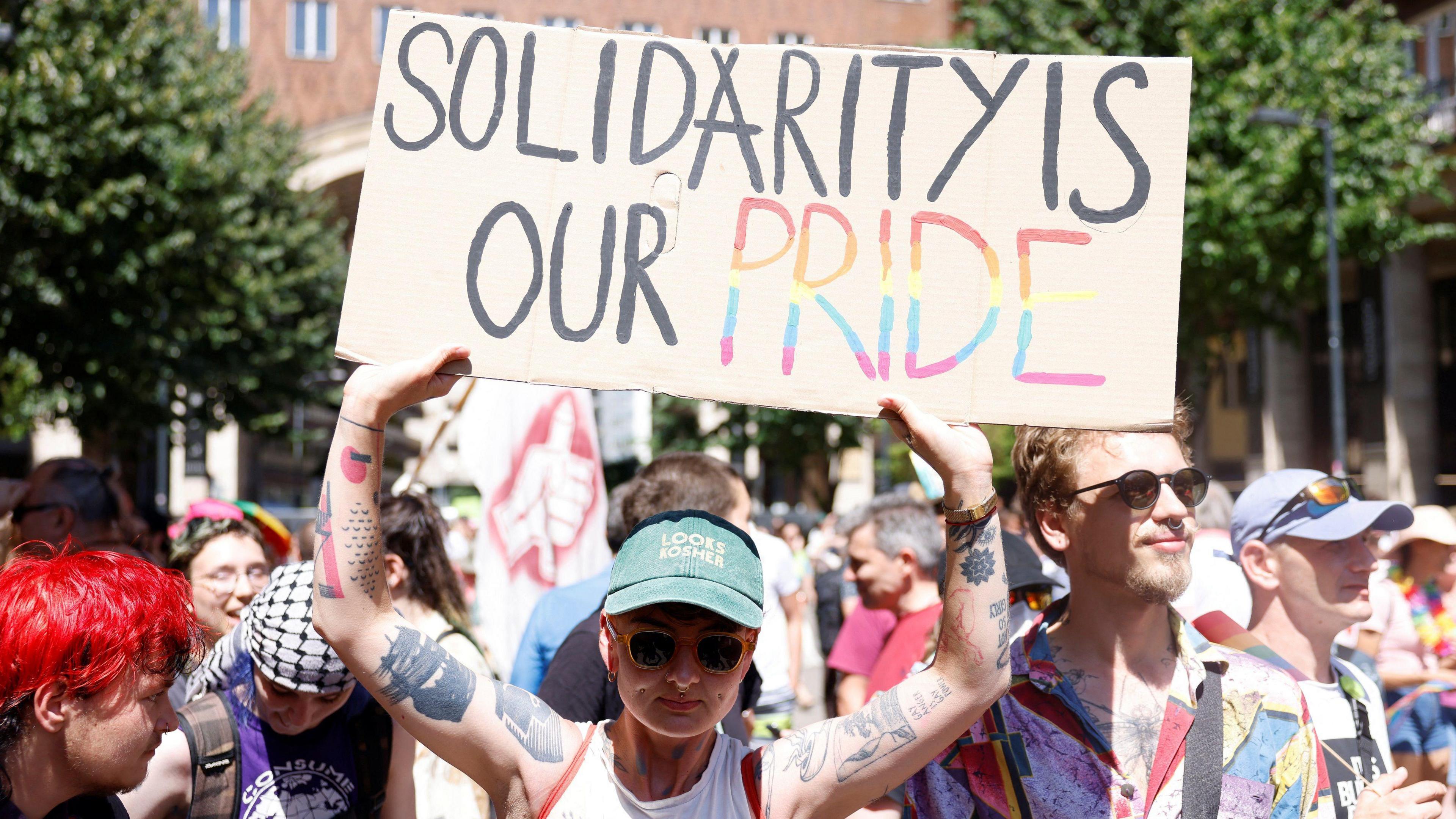Budapest Pride draws huge crowds in defiance of Orban legal threats

People cross Elisabeth Bridge during the Pride March in Budapest
- Published
Tens of thousands have gathered for the Budapest Pride march, defying Hungarian Prime Minister Viktor Orban's legal threats against LGBTQ rights activists.
Organisers estimated that a record 200,000 people may have taken part despite mounting pressure from nationalist conservative politicians and police to stop any display of pro-LGBTQ material.
The police issued a ban in line with a new "child protection" law restricting gatherings considered to be promoting homosexuality.
Orban downplayed the possibility of violent clashes between police and participants, but warned of potential legal repercussions for attendees.

"Of course, the police could break up such events, because they have the authority to do so, but Hungary is a civilised country, a civic society. We don't hurt each other," he told state radio on Friday.
"There will be legal consequences, but it cannot reach the level of physical abuse."
Attendees risk a fine of up to €500 (£427; $586), with police empowered to use facial recognition technology to identify them.
Organisers could face a one-year prison sentence.
Luca, 34, who is planning to attend with her mother Enikö, said they want a country of "diversity" which she said they don't currently have.
"We have a law that bans people who are different from others to gather. This is why we are here. Because it's hurting our rights. That's why we came."
She told the BBC she is worried about her four-year-old daughter's future living "in a country where she can't love anyone she wants to".
Barnabás said he was attending to "express my solidarity with the LGBTQ community... because I know what it feels like not being seen and to be treated like an outcast, which obviously everyone here is not".
Not part of the community himself, the 22-year-old said he comes from the countryside, where people "are more likely to be xenophobic and homophobic".
EU equalities commissioner Hadja Lahbib, a former Belgian foreign minister, is in Budapest and expected to join the march.
On Friday, she posted a picture showing her standing with the liberal Budapest mayor Gergely Karacsony in front of a rainbow flag symbolising gay rights.
The Pride march "will be a powerful symbol of the strength of the civil society", she wrote on X.

A pro-LGBT placard depicting Hungary's Prime Minister Viktor Orban
Dozens of Members of the European Parliament (MEPs) were also expected to be in attendance.
Finnish MEP Li Andersson said it was important for her and her European colleagues to be there to show solidarity with both Hungary's LGBTQI community and civil society.
"It's important to emphasise that the reason why we are here is not only Pride - this is about the fundamental rights of all of us."
She added that she thinks Orban is using arguments on family values as a pretext to ban the march.
"[It's] a march that is fundamentally about equality and about equal rights for anyone - for everybody, about the right to love and live with whoever you choose.
"And I think that's a core value that any free and democratic society should respect."

People gathered to march from across the country - and Europe - in solidarity with Hungary's Pride
Karacsony, a member of Hungary's opposition, has insisted no-one attending the march can face any reprisals as it has been co-organised by city hall, and as such is a municipal event that does not require police approval.
Ahead of the Pride, European Commission President Ursula von der Leyen asked the Orban government not to block the march.
Orban was unfazed, asking her "to refrain from interfering in the law enforcement affairs" of EU member countries.